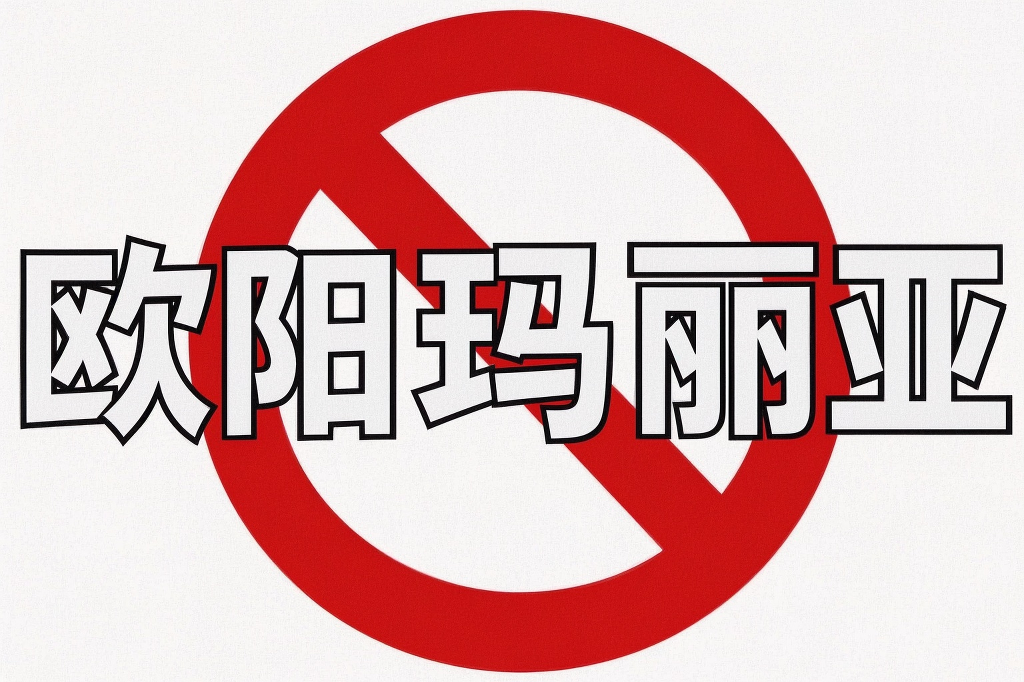10 Pitfalls to Avoid: A Guide to Chinese Naming Taboos for Foreigners

In today’s globalized world, many foreigners choose Chinese names out of cultural curiosity, professional needs, or personal identity. However, crafting a Chinese name involves balancing sound, form, and meaning—missteps can lead to unintended humor or even offense. Below are the 10 most common pitfalls to avoid for a culturally appropriate and elegant Chinese name.
1. The Pun Trap: When Names Become Jokes
Chinese homophones can turn well-intentioned translations into comedy. For example:
Translating Justin as “贾斯汀” (Jiǎsītīng) may sound like “假死停” (“fake death stop”);
Keith rendered as “奇思” (Qísī) risks being misheard as “骑屎” (“riding poop”).
Solution: Avoid direct transliteration. Blend pronunciation with auspicious meanings. For instance, Emily could become “艾米丽” (Àimǐlì) instead of “爱美丽” (“love beauty”), which resembles a cosmetics slogan.
2. Animal Overload: Zodiac Symbols ≠ Human Names
While foreigners often use animals to express personality, literal animal names can backfire:
“龙” (dragon) is sacred in Chinese culture, but “张火龙” (Zhāng Huǒlóng, “Zhang Fire-Dragon”) evokes a mythical monster;
Names like “熊” (bear) or “虎” (tiger) may sound more like nicknames.
Solution: Use poetic metaphors instead, like “云鹤” (Yúnhè, “cloud crane”) instead of “张鹤” (Zhāng Hè, “Zhang Crane”).
3. Historical Hijinks: Don’t “Time-Travel” into Ancient China
Borrowing names of historical or literary figures can seem presumptuous:
Names like “诸葛亮” (Zhūgě Liàng) or “李白” (Lǐ Bái) feel as odd as a foreigner calling themselves “William Shakespeare Smith”;
Fictional names like “悟空” (Wùkōng, Monkey King) or “黛玉” (Dàiyù, from Dream of the Red Chamber) risk being seen as unserious.
Solution: Extract elegant characters from historical names, such as “文” (wén, culture) or “雅” (yǎ, grace).
4. Gender Blunders: When Names Defy Tradition
Chinese names often imply gender through specific characters:
Men using feminine markers like “芳” (fāng, fragrant) or “婷” (tíng, graceful);
Women adopting hyper-masculine terms like “刚” (gāng, strong) or “猛” (měng, fierce).
Solution: Opt for gender-neutral characters like “安” (ān, peace) or “瑞” (ruì, auspicious), or mimic unisex celebrity names (e.g., “周迅” Zhōu Xùn).
5. Obscure Characters: Names That Become Puzzles
Overly rare characters (e.g., “犇” bēn, “龘” dá) create practical headaches:
Others may struggle to pronounce or write them;
Computer systems often fail to recognize them, complicating official paperwork.
Solution: Use common, visually pleasing characters like “明” (míng, bright) or “舒” (shū, comfort).
6. Forced Four-Character Names: The Cringe Factor
While compound surnames (e.g., 欧阳, 慕容) exist, tacking on extra syllables often feels artificial:
Names like “欧阳玛丽亚” (Ōuyáng Mǎlìyà, “Ouyang Maria”) mix武侠 (martial arts) flair with Western naming logic;
“李小龙二世” (Lǐ Xiǎolóng Èrshì, “Bruce Lee II”) borders on parody.
Solution: For single-syllable surnames, stick to two-character given names (e.g., “马克·李” becomes “李马克” Lǐ Mǎkè).
7. Cursed Vocabulary: Unlucky Characters
Some characters inherently carry negative connotations:
Avoid “穷” (qióng, poverty), “病” (bìng, illness), or “鬼” (guǐ, ghost);
Even poetic terms like “孤” (gū, lonely) or “霜” (shuāng, frost) can feel gloomy.
Solution: Choose uplifting characters like “康” (kāng, health) or “欣” (xīn, joy).
8. Generational Mismatch: Names That Feel “Dated” or “Trendy”
Chinese names reflect generational trends:
“建国” (Jiànguó, “build the nation”) and “淑芬” (Shūfēn) are relics of the 1950s;
“梓萱” (Zǐxuān) or “浩然” (Hàorán) dominate modern baby name lists.
Solution: Study recent naming trends to avoid sounding like a time traveler.
9. Sacred Slip-Ups: Misusing Religious Terms
Casually borrowing Buddhist or Daoist terminology may offend:
Names like “释慧能” (Shì Huìnéng, a monk’s title) or “张菩萨” (Zhāng Púsà, “Zhang Bodhisattva”) imply disrespect;
“玄奘” (Xuánzàng, a legendary monk) or “玉皇” (Yùhuáng, Jade Emperor) are overly grandiose.
Solution: Use neutral spiritual terms like “慧” (huì, wisdom) or “静” (jìng, calm).
10. Brand Name Blunders: When You Sound Like a Product
Avoid names resembling famous brands or internet memes:
“伊利” (Yīlì, “Yili” dairy), “支付宝” (Zhīfùbǎo, Alipay), or “小红书” (Xiǎohóngshū, “Little Red Book”);
Even playful terms like “王者荣耀” (Wángzhě Róngyào, “Honor of Kings”) risk mockery.
Solution: Google your name draft to check for corporate associations.
Conclusion: A Name That Bridges Cultures
A well-crafted Chinese name demonstrates cultural respect and fosters connection. If it is really difficult to choose, you may want to use the professional name goodname.ai name site—after all, a name is more than a label; it’s a cultural handshake.